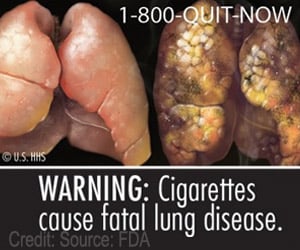Psychiatric hospitalizations linked to methamphetamine increased by 68%, while those involving opioids decreased. Data based on trend analysis study in U.S.

U.S. trends in methamphetamine-involved psychiatric hospitalizations in the United States, 2015-2019
Go to source).
‘Did You Know?
Methamphetamine is a potent and highly addictive stimulant that impacts the central nervous system. Misuse of this substance can lead to adverse effects such as memory impairment, increased aggression, psychotic episodes, cardiovascular damage, malnutrition, and dental issues. #methamphetamine #overdose #medindia’





The research highlights that the highest rates of psychiatric hospitalizations linked to methamphetamine use were observed in the Mountain West region, although there are indications of a geographical shift. “Rates of methamphetamine-involved psychiatric hospitalizations with were by far the highest in the Mountain West. As expected, this mirrors rates of self-reported methamphetamine use and methamphetamine-related overdose deaths in the Mountain West.” says Susan Calcaterra, MD, MPH, professor at the University of Colorado Anschutz Medical Campus and study lead author. “Psychiatric hospitalizations involving methamphetamine use is really taking off in the Midwest and Northeast, in particular.”Methamphetamine is a potent and highly addictive stimulant that impacts the central nervous system. Misuse of this substance can lead to adverse effects such as memory impairment, increased aggression, psychotic episodes, cardiovascular damage, malnutrition, and dental issues. #methamphetamine #overdose #medindia’
During the study period, methamphetamine-related psychiatric hospitalizations surged by 68%, while opioids-related hospitalizations saw a decline of 22%. The rise in methamphetamine cases may be linked to the drug's widespread availability, decrease in cost, and the insufficient resources to manage the use of methamphetamine. The reasons behind the decrease in opioid-related hospitalizations remain uncertain but may be influenced by the high lethality associated with fentanyl.
“An important takeaway from this study is the need for resources to address the mental and physical treatment of methamphetamine use,” says Calcaterra.
“While the vast majority of psychiatric hospitalizations in this timeframe did not involve substance use, the significant increase in methamphetamine use means we have to better consider harm reduction in clinical settings. Evidence-based interventions such as contingency management which involves offering incentives for abstinence, harm reduction education, provision of naloxone for overdose reversal and access to expanded mental health treatments are proven to help mitigate dangerous effects from methamphetamine use, especially when contaminated with fentanyl much like the campaigns aimed at public awareness around opioid use.”
The research emphasises the requirement of resources to manage the physical and mental heath consequences associated with Methamphetamine.
Advertisement
- U.S. trends in methamphetamine-involved psychiatric hospitalizations in the United States, 2015-2019 - (https://www.sciencedirect.com/science/article/abs/pii/S0376871624003326?via%3Dihub)
Source-Eurekalert









